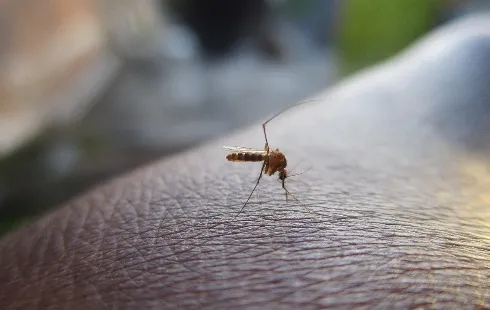
Inside the Conclave: 10 Fascinating Facts About the Secretive Process to Elect a New Pope
Section: Politics
Spermidine, a naturally occurring polyamine found in various foods, is garnering attention for its potential health benefits, particularly in slowing cellular aging and possibly reducing cancer risk. While preliminary research highlights its significance, questions remain regarding its efficacy in human health.
The Science Behind SpermidinePolyamines, including spermidine, play crucial roles in cellular functions such as division and growth, as well as in maintaining genetic stability. Researchers are particularly intrigued by spermidine's potential to enhance longevity by promoting cellular health, suggesting it could support the body's natural processes that maintain cellular integrity.
Autophagy: The Cellular Cleanup ProcessA key aspect of spermidine's proposed benefits lies in its ability to boost autophagy, the process by which cells eliminate damaged components and recycle cellular materials. This mechanism is vital for cellular repair and rejuvenation, but its effectiveness declines with age, which can increase the risk of neurodegenerative diseases such as Alzheimer's and Parkinson's.
Are the Claims Justified?Despite the promising hypotheses surrounding spermidine, experts caution against overzealous claims. Current research has predominantly been conducted in animal models, and no concrete evidence has yet confirmed the benefits of spermidine supplements in human trials. Some specialists argue that while the existing studies are encouraging, they do not yet warrant definitive conclusions about its effectiveness for humans.
Dietary Sources of SpermidineFor those interested in increasing their spermidine intake, it is worth noting that it is found in various foods. Fermented soybeans, known as natto, are particularly rich in spermidine, containing about 20 milligrams per 100 grams. Other notable sources include wheat germ, sprouts, cooked potatoes, broccoli, cauliflower, maize, green beans, mango, whole grains, and nuts like hazelnuts. Additionally, certain meats, such as ground beef and chicken liver, along with aged cheeses like Parmesan, also contribute to dietary spermidine.
The Need for Further ResearchDespite the potential benefits of spermidine, experts emphasize that more extensive research is needed to ascertain its health effects in humans. Many studies are currently underway examining its implications for diseases such as cancer and dementia. While there's cautious optimism regarding spermidine's possible advantages, conclusive evidence remains elusive.
ConclusionAs the scientific community continues to investigate spermidine, individuals interested in its potential benefits should focus on obtaining it through a balanced diet. While the excitement surrounding this compound is understandable, it is essential to approach its health claims with a critical mindset until more definitive research emerges.

Section: Politics

Section: Health

Section: Health

Section: Politics

Section: Business

Section: Science

Section: Politics

Section: News

Section: News

Section: Politics

Health Insurance in Germany is compulsory and sometimes complicated, not to mention expensive. As an expat, you are required to navigate this landscape within weeks of arriving, so check our FAQ on PKV. For our guide on resources and access to agents who can give you a competitive quote, try our PKV Cost comparison tool.

Germany is famous for its medical expertise and extensive number of hospitals and clinics. See this comprehensive directory of hospitals and clinics across the country, complete with links to their websites, addresses, contact info, and specializations/services.

Join us for an exciting theatrical experience on Saturday, May 10, 2025, from 19:30 to 22:00 at the Münchner Kammerspiele - Werkraum. This performance, directed by Melina Dressler, is a directorial exercise inspired by Heiner Müller's 'Quartett' and incorporates texts by Michel Foucault. The...
No comments yet. Be the first to comment!